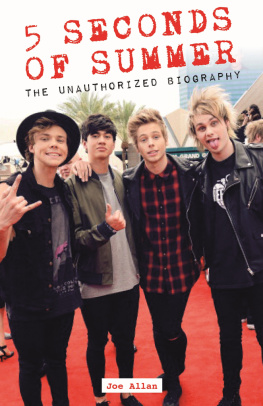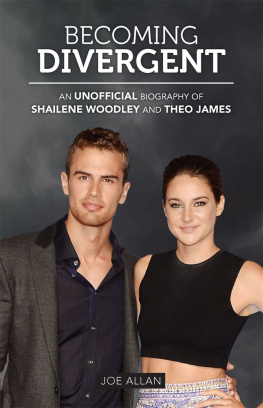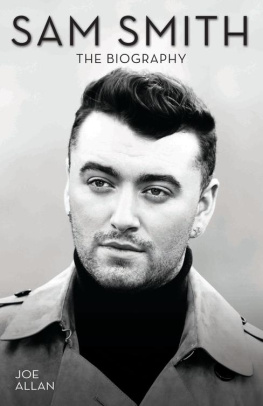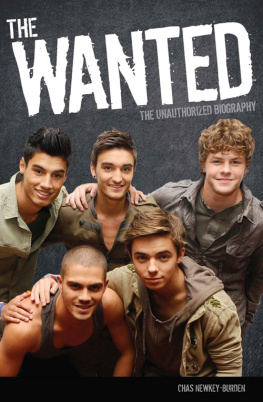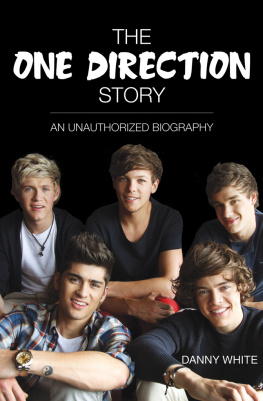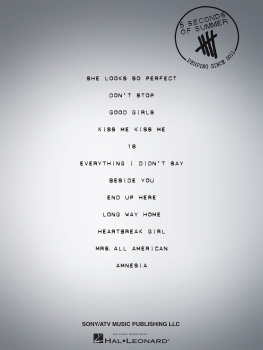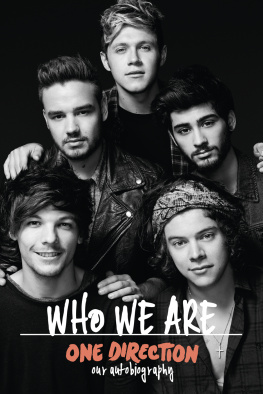First published in Great Britain in 2014 by
Michael OMara Books Limited
9 Lion Yard
Tremadoc Road
London SW4 7NQ
Copyright Michael OMara Books Limited 2014
All rights reserved. You may not copy, store, distribute, transmit, reproduce or otherwise make available this publication (or any part of it) in any form, or by any means (electronic, digital, optical, mechanical, photocopying, recording or otherwise), without the prior written permission of the publisher. Any person who does any unauthorized act in relation to this publication may be liable to criminal prosecution and civil claims for damages.
A CIP catalogue record for this book is available from the British Library.
ISBN: 978-1-78243-367-5 in hardback print format
ISBN: 978-1-78243-369-9 in trade paperback print format
ISBN: 978-1-78243-368-2 in e-book format
Designed and typeset by Design 23
www.mombooks.com
This book is dedicated to Tony French.
For boundless support as I took my first steps on a hidden path.
CONTENTS
We have an imaginary bus: its called the 5SOS Bus. Were driving the bus and people come on the bus and they get off the bus, but were the only ones who always stay on the bus. These guys arent even best friends; theyre like brothers to me now. They are like family. So wherever the band is, home is, really.
C ALUM H OOD A USTRALIA S 60 M INUTES
T he Australian music scene has never been more vibrant, diverse and as rich with talent. Aside from 5 Seconds of Summer, artists as varied as Iggy Azalea, the new queen of hip-hop, singer-songwriter Vance Joy, electronic act Empire of the Sun and drum and bass stars, Pendulum, have, in recent times, achieved critical acclaim and success on a global scale. This breakthrough has not been strictly limited to performers. In the last couple of years, singer-songwriter Sia Furler, who was born in Adelaide, has become one of the most sought-after songwriters in the world, penning international hits for a multitude of artists including Rihanna, Lea Michele, David Guetta, Rita Ora, Katy Perry and Jessie J.
It hasnt always been the case that Australian artists would find automatic, international acceptance for their music, however, and for many years much of Australias biggest-selling home-grown talent found success outside of their homeland hard to come by. Whether it was due to a lack of an original sound, or simply the continents geographical isolation, Australian exports were largely limited to artists who sounded very similar to their American and British counterparts, or novelty acts using their Aussie roots as a gimmick. When Australian new-wave, pop-rock group Men at Work scored a worldwide hit in early 1983 with the song Down Under, it appeared that they fitted squarely into the latter category. With lyrics filled with every stereotype about Australia and Australian life you could possibly imagine, and a sound that vaguely echoed the rockreggae hybrid of Britains The Police, Men at Work looked as though they had anything but a profound message. Yet there was more to the song than its infectious chorus, and on closer inspection it could be taken as a sly comment on the fact that Australian culture, its artists and the music the country was producing were being largely ignored, dismissed and reduced to clich. The cries of Cant you hear the thunder? and You better run, you better take cover in the chorus could have just as easily applied to the explosion of untapped talent and new music that was about to erupt from the land down under over the next few years.
From the mid-eighties onwards, the Australian nation saw an unprecedented outpouring of new musical talent. There were massive international crossover artists such as rock band INXS and metal pioneers AC/DC, country singer Keith Urban, and a multitude of pop acts including Savage Garden, Holly Valance, Delta Goodrem and the undisputed princess of pop herself, Kylie Minogue. The countrys vast size and apparent isolation from outside influences seemed to be no longer an issue and, if anything, only added to the creativity and uniqueness of the musicians it produced.
It was into this global music market that 5 Seconds of Summer was launched. In what is a classic rags-to-riches tale, they landed a string of worldwide hit singles, a multi-platinum-selling debut album and an army of loyal fans. Yet, while many things may have changed in the music business in the last few decades, one thing has stayed more or less the same: there is no such thing as an overnight success, and 5SOS were no exception.
Even considering todays culture of instant fame and celebrity, thanks to the likes of YouTube and reality television, in the music business, things tend to take a little longer, requiring a lot of planning and hard work behind the scenes not to mention finding an artist with the talent, the look and the right attitude to succeed in the first place. However, originality and aptitude have rarely been the only factors to guarantee success, and with the continuing pull of reality shows and televised singing competitions such as The Voice, The X Factor and American Idol, luck and timing have an important part to play. Its hardly surprising that the members of a manufactured pop band, such as One Direction, become global superstars so rapidly when you consider the blanket exposure they receive over a relatively short space of time. Multiple appearances on the UKs most-watched television show, The X Factor, every week for several months inevitably helped One Direction reach a wide and accepting audience. When you then contemplate the added global exposure for every performance across online video channels such as YouTube and other internet sites, it was almost inevitable the band would build an enormous fan base and reap the many rewards of fame.
But building a fan following from the ground up might be thought of as the easy part. Keeping those fans on board, when the next big thing comes along, is much harder. These days, while fame and fortune can come very quickly, the really tricky part, and the key to true achievement, is making it last.
Around the same time as Men at Work were flying the flag for Australia, British pop band Duran Duran were making it big in America. In 1983, they were already well established back in the UK, having signed to EMI Records former home to The Beatles and one of the biggest and most successful record companies in the world a few years earlier. Hungry Like the Wolf, their breakout song in the US, was actually their fifth UK hit single, lifted from their second album, Rio (their self-titled debut album having gone largely unnoticed in America in 1981). Their triumphs were hard earned, but the band had the weight of a powerful press and marketing team behind them. To break America, the band was swept along on a whirlwind tour, performing endless numbers of shows, but were stuck half way around the world. A gruelling schedule for anyone, and before long it started to take its toll on some of the band members. Hardly the rapid success story enjoyed by One Direction, but the end results amounted to the same.
Duran Durans original drummer, Roger Taylor, told Classic Pop magazine, People think it is amazing being in a successful band from the outside, but its not the greatest world to be in you live in hotels, need security to walk down the street, cant go to the shops. Its a difficult life. The pressures are often unexpected and the workload extreme, he continued. I do see similarities with One Direction today. I worry a little bit about them because they are young like we were in an intense environment I was nineteen years old when I joined the band, and by twenty-three I was playing Madison Square Garden, flying around the world in my own airplane. It was too much.

